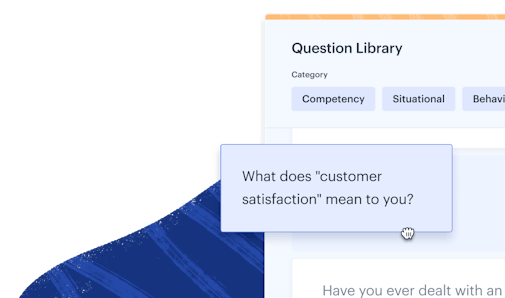Let’s just speak the truth about writing to customers: It’s difficult. Customers can be rude. Their writing can be unclear. And if your team has to be great at responding to customers in both email and chat, that’s even more difficult.
While the two channels do require some of the same writing skills — using correct grammar, writing in a friendly tone — a great email writer and a great chat writer are as different as an Olympic sprinter and a World Cup goalie. These athletes might share the same peak-level fitness, but they use different muscles to win.
So, is it "either" or “both”? Can a person be a great customer service email writer and a great live chat writer? Can we hire agents who have both sets of skills? Let’s first look at how truly great email writing and live chat writing skills differ.
Great email writing combines analytical reading skills with well-crafted prose.
Analytical reading skills
Great customer service email writers are excellent analytical readers. That means they have the analytical reading skills to distinguish between what the customer wrote and what the customer is really asking. Here’s an example. A great customer service email writer reads Charlie’s email to "Web Copy Shop" and uses analytical reading skills to identify what Charlie is really asking.
| Customer’s email | Analytical reading: What is this customer really asking? |
|---|---|
From: Charlie Barnstable To: Help@WebCopyShop.com Subject: Error message with online print order Hello – I’ve been at [URL] trying to complete my online order. I have been trying for about 15 minutes. Here’s the error message: "Please correct the following error(s) to proceed: We’re sorry. There is a problem with our system. To continue, please select another delivery option." I have tried to select all the delivery options but I keep getting the same error message. What’s going on?? Thanks - Charlie | -How do I place my order? -Did I make a mistake or is your system broken? -Did my order, in fact, go through? |
Great email writers have to be astute readers. A so-so email writer would give this email a surface read and launch into an answer to the only question the customer actually wrote: "What’s going on??" That hasty read would yield a seriously less-than-helpful email reply.
Well-crafted prose
Because they aren’t composing replies in real time, great email writers should be able to write on-brand, easy-to-read, well-punctuated sentences.
Here’s an email written by an agent who knows how to write gracefully:
Dear Karen,
Thanks for contacting us about the difficulties you had with your account yesterday. I’m sorry you had trouble finding the images you had stored in your StockFoto account. We should have let you and our other Platinum Package customers know that we were updating our database, so our online library had some glitches yesterday afternoon. Our updates are complete and our online library is back to normal!
I’ve taken a look at your account, and I see that you have purchased three of the stored images today. We’re glad to waive the $17.96 fee for those images, so look for a credit for that amount on your account by the end of the day.
Please let me know if you have any other questions about stored photos or your account.
Thanks,
William
While this email may not win the Pulitzer prize for literature, it certainly shows that the email agent can write in a personal, professional and readable fashion.
Great chat writing combines probing skills with nimble, short responses
Probing skills
Unlike email, where we’re trying our best to avoid numerous back-and-forths, great chat writers take advantage of chat’s opportunity to ask probing questions. They cause back-and-forth conversation with customers so they can truly understand what the customer needs. Here’s an example:
Susan: Welcome to HomeStuff.com. My name is Susan, how may I assist you today?,
Mark: Hi - I would like to buy a bird bath or bird feeder. Do you sell either of these?
Susan: Please give me a moment. I’d be glad to check our catalog for you. Susan: I’m really sorry. We have carried bird baths and bird feeders in the past, but we don't have any at this time.
Mark: Thanks anyway
Susan: My pleasure! May I ask – are you shopping for yourself or are you looking for a gift?
Mark: It’s a gift for my sister. She’s got a new house with a deck. She loves birds.
Susan: Thanks. Would you consider another gift item for her new deck? Susan: If she likes plants, she might like the Jewel Tone Ceramic Pots for a housewarming gift. What do you think of that option?
Mark: That might work. But she’s really into birds.
Susan: Here’s another idea. Our Solar-Powered Cascade Table Fountain would be a great gift, and the catalog mentions that this fountain often attracts birds. Is this a better option?
Mark: Great! I’ll take a look. Fountain… birdbath – they’re pretty close. That might work.
Nimble, short responses
Great chat writers are fast, brief, and good. They write quickly, keeping their eye on the clock to avoid letting the seconds slip by or causing the dreaded "Are you still there?" from the customer. They break longer answers into smaller portions to make them easy to read for customers who are chatting on their phones or typing into the small chat window that just popped up on the website. Remember the email from William at StockFoto.com to Karen, who’d had a problem finding saved photos in her account? Here’s how William’s generous, flowing email sentences would look if he’d written them as short, nimble chat responses.
William: Sorry about the difficulties you had finding stored images in your account.
William: We were updating our database yesterday, so our online library was glitchy.
William: I truly apologize. We should’ve let Platinum Package customers know about this maintenance.
William: Updates are complete today and our library is back to normal!
William: I checked your account, and I see you’ve purchased three of the stored images today for a total fee of $17.96.
William: We’d be glad to waive your fee, so look for a credit for $17.96 on your account by the end of the day.
So, is it "either" or “both”?
Here’s the truth: "Either" is more likely, but “both” is more desirable. You’re more likely to hire agents who have writing skills suited to either email or to chat than to find that four-leaf-clover agent who’s a great writer in both channels.
However, hiring agents who are great at both channels is better for your support organization, of course. When you have these multi-channel-talented writers on staff, you can nimbly deploy staff to the channel that has the most contacts or the longest queue. Blended email/chat agents enjoy their work more because they suffer less burnout. And blended agents understand customers better. Each written channel draws a different type of customer. If your agents are writing in two channels, they’ll understand how to serve a wider range of customers. Writing in two channels — one that’s synchronous and one that’s not — will make your team wiser and more versatile.
Use authentic methods of screening applicants for email or chat writing skills. You say you want to hire great writers? Then you must always use authentic methods of screening people who apply. Don’t administer a 20-point spelling or grammar test. Check their spelling and grammar in the email sample you ask them to write on-site during the interview or in the transcript of the chat they did with a volunteer "customer" from your team. Screen writers to see whether they have the skills they need to write to your customers by asking them to produce a writing sample based on information you supply. None of this “Please write a 500-word essay on the best book you read this year” or “Participate in a live chat with a pretend customer in which you explain how to make a peanut butter sandwich.” These screening methods are undignified and do little to help you choose whether to hire the person.
Ask applicants, "When you had writing problems in your previous job, what steps did you take to improve?" Any agent who has the breadth of writing skills to be great at both email and chat should have a ready answer to this question. A person who can’t answer this question at all isn’t reflective about their own writing. They’re not very aware of what they need to work on and how to improve. That type of person may be good at either email or chat, but they’re highly unlikely to be good at both.
Use your agents’ own email and chat samples as the core content of ongoing writing training programs. Whether you develop writing training in-house or use an outside consultant, your training programs should supply agents with tons of examples of how to write to their own customers. Training is a type of food, and if you want to nourish your dual email/chat agents well, they need to see lots of familiar examples, both good and bad. Don’t choose writing training programs that offer more of a consultant’s "trademarked approach" than they do of your team’s own emails or chats. To develop the scope of writing skills you’re requiring, your agents should have lots of samples to learn from.
Ask your agents to identify examples of their best writing. "For next Friday’s writing training, please bring two of your best emails and two of your best chats." Asking agents to find examples of their best work is a low-cost, high-yield way of improving their writing skills in both channels. This training method yields lots of benefits: You “catch” your agents doing great work, they develop their ability to explain how good writing works, and you gather writing samples you can share with new employees or your agents can share through peer mentoring.
Give agents access to a library of well-written, customizable templates. If you’re in the no-scripts-no-way-not-now-not-ever camp, you may want to skip this tip. But if you really want to help agents write great emails and great chat, some pre-written content for each channel (templates) would go a long way. Robotic, cold, and un-customizable templates make for horrible communication with customers. But templates can be written in a modern, personal style. And your agents can — and should — be trained to customize templates when they use them, so customers don’t even realize they’re reading a template.Look, if you hire a professional chef to cook at your Italian restaurant and at your Japanese restaurant, she may be able to switch between cuisines more easily if you give her a recipe for the lasagne and one for the tempura. She may not stick to the recipes exactly, but it will help her cook at both restaurants if she has something to start with.
Equip agents with a spell-checker that actually works. It’s a humble tool, but an important one. Give agents a spell-checker that (a) can be customized and (b) has an autocorrect function. Your company uses lots of words an off-the-shelf spell-checker won’t know, so the tool has to be customized to be at all valuable. Remember, a non-customizable spell-checker will tell agents that your product names are spelled incorrectly, even if your brand does actually sell slacks it calls "Trouzers" or sweets it calls “Kandy-Treets.” And a spell-checker that also has an autocorrect function will catch and correct innocent but embarrassing keyboarding errors, by replacing “htat” with “that,” for example. Autocorrect is especially important for your quick-typing chat agents.
So, is it "either" or “both”?
It’s both. You can hire people who are great email writers and live chat writers. But it won’t be easy to find them, and it may not be easy to keep them happy and motivated in the high-stress world of customer support.
People who have versatile writing skills are in demand in all fields. They have options. So if you’re lucky enough to have them on your team, you’ll also need to think about their career paths, how well you’re paying them, the projects that motivate them, and ways you can protect them from burnout.







